Maximum Shelf: Jeannette Walls
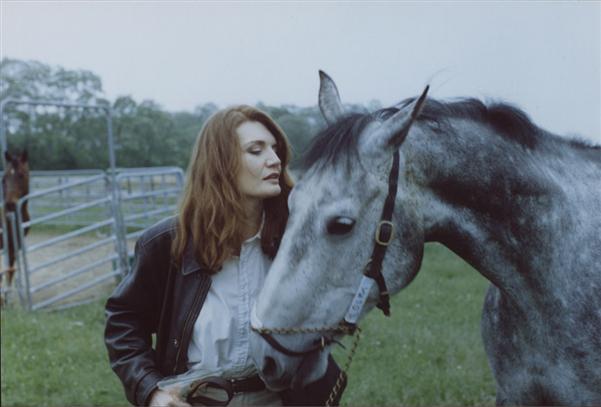 Jeannette
Walls was born in Phoenix, Ariz., and grew up in the southwest and in Welch, W.Va.
She graduated from Barnard College and was a journalist in New York City for 20
years. Her memoir, The Glass Castle, a New York Times bestseller for more than three years, has sold over
2.5 million copies in the U.S. alone and has been translated into 22 languages,
making it one of the bestselling memoirs of all time. A stunning and
beautifully written account of overcoming a challenging childhood with her
unusual, dysfunctional but vibrant family, The Glass Castle has received
many honors, including the Christopher Award for helping to "affirm the
highest values of the human spirit," as well as the American Library
Association's Alex Award and a Books for Better Living Award.
Jeannette
Walls was born in Phoenix, Ariz., and grew up in the southwest and in Welch, W.Va.
She graduated from Barnard College and was a journalist in New York City for 20
years. Her memoir, The Glass Castle, a New York Times bestseller for more than three years, has sold over
2.5 million copies in the U.S. alone and has been translated into 22 languages,
making it one of the bestselling memoirs of all time. A stunning and
beautifully written account of overcoming a challenging childhood with her
unusual, dysfunctional but vibrant family, The Glass Castle has received
many honors, including the Christopher Award for helping to "affirm the
highest values of the human spirit," as well as the American Library
Association's Alex Award and a Books for Better Living Award.
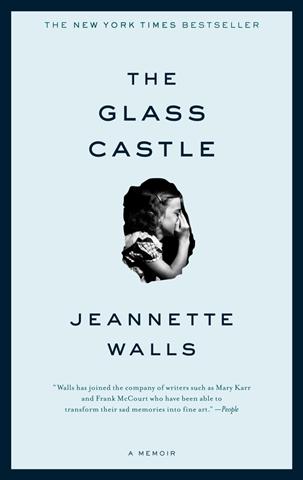 Walls followed The Glass Castle with Half Broke Horses: A True-Life Novel,
the fascinating story of Lily Casey Smith, Jeannette Walls's own grandmother.
At age six, Lily was helping her father break horses and at 15, she left home
on her own--riding 500 miles on a pony--to teach in a frontier town. An
indomitable and unforgettable character, Lily Casey Smith learned to drive a
car, fly a plane and, with her husband, Jim, she ran a ranch in Arizona. A survivor
in every sense, Lily Casey Smith challenged discrimination against women and
Native Americans and endured great personal tragedy. Lily's daughter, Rosemary
Smith Walls, is Jeannette's unforgettably unique mother whom readers will
remember from her vivid portrayal in The
Glass Castle. Here, Walls channels her grandmother's frontier spirit in a
story that is a testament to the bonds of family, perseverance and the essence
of true independence.
Walls followed The Glass Castle with Half Broke Horses: A True-Life Novel,
the fascinating story of Lily Casey Smith, Jeannette Walls's own grandmother.
At age six, Lily was helping her father break horses and at 15, she left home
on her own--riding 500 miles on a pony--to teach in a frontier town. An
indomitable and unforgettable character, Lily Casey Smith learned to drive a
car, fly a plane and, with her husband, Jim, she ran a ranch in Arizona. A survivor
in every sense, Lily Casey Smith challenged discrimination against women and
Native Americans and endured great personal tragedy. Lily's daughter, Rosemary
Smith Walls, is Jeannette's unforgettably unique mother whom readers will
remember from her vivid portrayal in The
Glass Castle. Here, Walls channels her grandmother's frontier spirit in a
story that is a testament to the bonds of family, perseverance and the essence
of true independence.
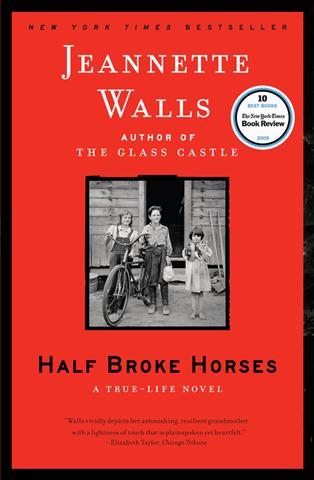 The Glass Castle and Half Broke Horses are book club favorites, for which Walls is
tremendously grateful. Both books deal with fundamental issues of family
and identity, topics that resonate with readers, who will find their own
stories within Walls's personal experiences. While her work has allowed her to
come to terms with her own past, Walls finds even greater satisfaction that
her books have allowed readers to feel comfortable discussing--and reconciling--similar
experiences in their own pasts. "One of the reasons I love writing
true-life stories," Walls says, "is that the truth is more nuanced
than fiction. If you're willing to dig deep enough, the truth is there."
The Glass Castle and Half Broke Horses are book club favorites, for which Walls is
tremendously grateful. Both books deal with fundamental issues of family
and identity, topics that resonate with readers, who will find their own
stories within Walls's personal experiences. While her work has allowed her to
come to terms with her own past, Walls finds even greater satisfaction that
her books have allowed readers to feel comfortable discussing--and reconciling--similar
experiences in their own pasts. "One of the reasons I love writing
true-life stories," Walls says, "is that the truth is more nuanced
than fiction. If you're willing to dig deep enough, the truth is there."
Although both The Glass Castle and Half Broke Horses are your own family stories, you experienced the former directly and reconstructed--or reimagined--the latter. What, for you, defines the difference between writing from memory and writing about personal history?
In writing The Glass Castle, the challenge was to be honest with myself. With Half Broke Horses, it was to be as true as possible to the story and the voice of my grandmother.
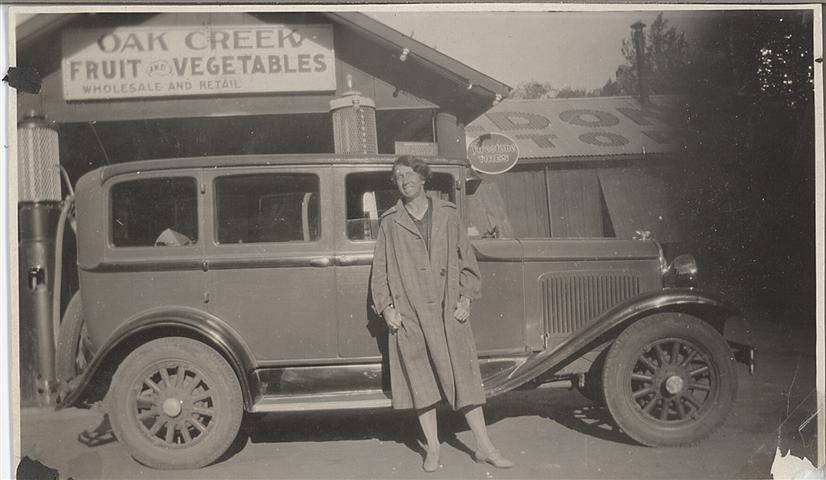 As a follow-up, what were the
challenges--and, conversely, the rewards--of writing the fictionalized account
of Half Broke Horses after the
memoir?
As a follow-up, what were the
challenges--and, conversely, the rewards--of writing the fictionalized account
of Half Broke Horses after the
memoir?
They were shockingly similar. It's all about story telling. It's all about trying to ferret out the truth, to explain how we got where we are, and how the answer is always there--if you're willing to dig deep enough.
For generations, the women in your family (including yourself) have coped with tremendous hardship, both physical and emotional, and yet have found creative and sustaining ways to survive. To what do you attribute the strength it has taken to face these challenges?
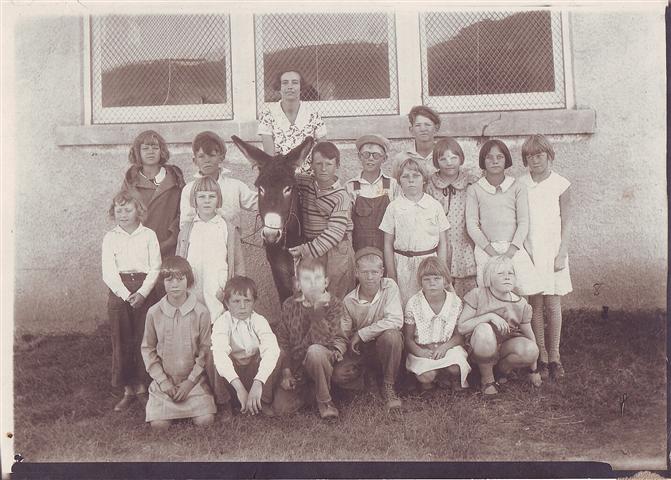 Necessity
is the mother of invention. That was always one of my mother's favorite
sayings, and she learned it from her mother, Lily. Lily was not only a school
teacher, but she also brought in extra money driving the school bus--which wasn't
really a bus, but a hearse with the words "SCHOOL BUS" painted on the
side. When the hearse got stuck in the mud or in a ditch, which it did a lot,
Lily would make the students get out and push--and recite Hail Marys while they
pushed. She'd holler at them, "Push and pray, kids, push and pray!" I
think that's not a bad philosophy for life. I believe in a higher authority, I
believe in the power of prayer and positive thinking and all that good stuff,
but I'm also a big fan of the power of pushing, of rolling up your sleeves and
doing the hard work that needs to be done. The combined power of pushing and
praying makes us all pretty strong.
Necessity
is the mother of invention. That was always one of my mother's favorite
sayings, and she learned it from her mother, Lily. Lily was not only a school
teacher, but she also brought in extra money driving the school bus--which wasn't
really a bus, but a hearse with the words "SCHOOL BUS" painted on the
side. When the hearse got stuck in the mud or in a ditch, which it did a lot,
Lily would make the students get out and push--and recite Hail Marys while they
pushed. She'd holler at them, "Push and pray, kids, push and pray!" I
think that's not a bad philosophy for life. I believe in a higher authority, I
believe in the power of prayer and positive thinking and all that good stuff,
but I'm also a big fan of the power of pushing, of rolling up your sleeves and
doing the hard work that needs to be done. The combined power of pushing and
praying makes us all pretty strong.
How did the success of The Glass Castle inform the writing of Half Broke Horses?
I've come to really trust readers. They were incredibly smart about The Glass Castle and understood the story so much better than I could have ever hoped. So when readers started suggesting that my next book should be about Mom, I listened--even though it ended up being about Mom's mom, it does tell her story by explaining her childhood.
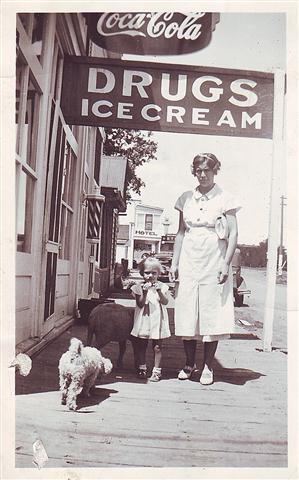 Your grandmother, Lily Casey Smith,
emerges from Half Broke Horses as an
indelible, complex character--a woman in many ways ahead of her time to whom
today's readers can immediately relate. What did you learn about yourself in
the course of writing her story?
Your grandmother, Lily Casey Smith,
emerges from Half Broke Horses as an
indelible, complex character--a woman in many ways ahead of her time to whom
today's readers can immediately relate. What did you learn about yourself in
the course of writing her story?
Lily was one tough broad and I say that with both disdain and admiration--because I'm alarmingly like her. I recognized myself in so many of her thoughts and actions, including some not always endearing traits. I also learned a lot about Mom, about her quirks and her values and why she made some of the choices that she did.
What, for you, is the most important thing we can all learn from Lily Casey Smith?
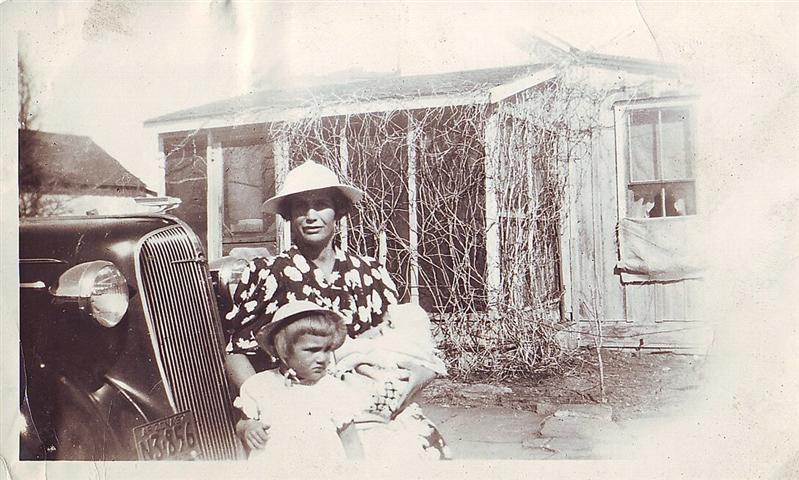 My ambition
for Half Broke Horses is that people
who read it will be moved to think about their own parents or grandparents or
great-grandparents. While touring on behalf of The Glass Castle, so many people have said to me that they're not
as strong as I am--that they never could have survived without indoor plumbing
or electricity--and while I'm flattered by their comments, they're nonsense.
Of course they could have. A hundred years ago, pretty much no one had these
luxuries. So I'm hoping that people who read Lily Casey Smith's story will
think about their own ancestors--most of whom were pretty tough characters who
survived without the things that we've come to view as necessities and who did
the back-breaking work that many of them needed to do to survive. I hope that
the readers are reminded that they have the same blood running through their
veins.
My ambition
for Half Broke Horses is that people
who read it will be moved to think about their own parents or grandparents or
great-grandparents. While touring on behalf of The Glass Castle, so many people have said to me that they're not
as strong as I am--that they never could have survived without indoor plumbing
or electricity--and while I'm flattered by their comments, they're nonsense.
Of course they could have. A hundred years ago, pretty much no one had these
luxuries. So I'm hoping that people who read Lily Casey Smith's story will
think about their own ancestors--most of whom were pretty tough characters who
survived without the things that we've come to view as necessities and who did
the back-breaking work that many of them needed to do to survive. I hope that
the readers are reminded that they have the same blood running through their
veins.
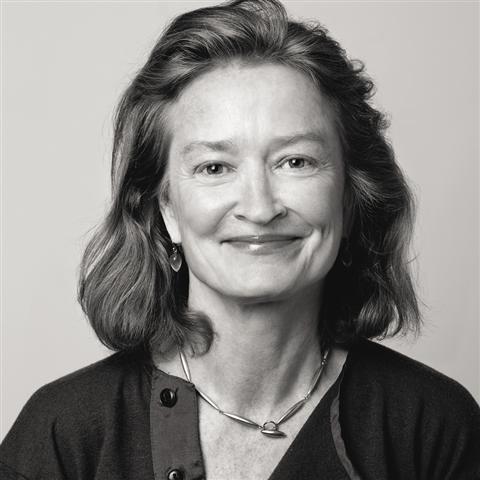 Nan Graham, has been editor-in-chief
of Scribner for 15 years; she is also senior vice-president of the imprint. Before coming to
Scribner, she worked at Viking Penguin. In addition to Jeannette Walls, her
authors include Don DeLillo, Stephen King, Annie Proulx, Amy Hempel, Monica
Ali, Miranda July, Kathy Reichs, Colm Toibin and Andrew Solomon. She edited the
memoirs The Liars' Club by
Mary Karr and Angela's Ashes
by Frank McCourt, as well as Living
History by Hillary Rodham Clinton.
In 2009, the New York Times Book
Review named Half Broke Horses one of the 10 best of the year. Graham's
2010 titles include Memory Wall
by Tony Doerr, The New Yorker Stories by Ann Beattie and the Pulitzer
Prize-winning The Emperor of All
Maladies: A Biography of Cancer by
Siddhartha Mukherjee.
Nan Graham, has been editor-in-chief
of Scribner for 15 years; she is also senior vice-president of the imprint. Before coming to
Scribner, she worked at Viking Penguin. In addition to Jeannette Walls, her
authors include Don DeLillo, Stephen King, Annie Proulx, Amy Hempel, Monica
Ali, Miranda July, Kathy Reichs, Colm Toibin and Andrew Solomon. She edited the
memoirs The Liars' Club by
Mary Karr and Angela's Ashes
by Frank McCourt, as well as Living
History by Hillary Rodham Clinton.
In 2009, the New York Times Book
Review named Half Broke Horses one of the 10 best of the year. Graham's
2010 titles include Memory Wall
by Tony Doerr, The New Yorker Stories by Ann Beattie and the Pulitzer
Prize-winning The Emperor of All
Maladies: A Biography of Cancer by
Siddhartha Mukherjee.
How did your editorial relationship with Jeannette Walls begin?
Jeannette's formidable and passionate agent Jennifer Rudolph Walsh sent me 58 pages of The Glass Castle in the summer of 2002. Like The Liars' Club and Angela's Ashes, which I'd edited years earlier, Jeannette's memoir arrived with its title. It never had and never could have had a different one. Those first pages included the fiercely candid opening scene of the final book, in which Jeannette, dressed for a party, wearing pearls, spots her mother rooting through a Dumpster, and slides down in her taxi seat so her mother won't see and embarrass her. They also included the description of the three-and-a-half-year-old Jeannette setting herself on fire while cooking a hot dog, and the gorgeous moment when Rex Walls offers his daughter one of the stars in the sky for Christmas and she asks him for Venus. I fell in love. Deep down, The Glass Castle is about the triumph of storytelling. No matter what else Jeannette's parents did--her mother's denials, her father's betrayals--they gave her a love of language. A year later, we had a complete manuscript, which Alexis Gargagliano and I whittled down a bit. If Jeannette had any flaws at all--and believe me, she's a star-- it was a lack of faith in her own power. She could absolutely nail a sentence, but then she might add another one just to be sure. She also had more stories about her adult life than we thought she needed.
Half Broke Horses is a wonderful example of how a fictionalized biography--in this case, of Lily Casey Smith, Jeannette's own grandmother--can bring out the best of both genres. In your view, is this type of "true-life novel" an emerging genre on its own?
For quite a while, through at least one round of editing, we were all calling Half Broke Horses nonfiction, "a memoir of Lily Casey Smith." But then we began to stumble over details and chronology and what might have been happening in the world outside Lily's life. Jeannette is scrupulous about telling the truth, and she couldn't fact-check Lily's story the way she did her own. We borrowed the phrase "a true-life novel" from Norman Mailer's The Executioner's Song, which lots of people remember as nonfiction. So if "true-life novel" is a genre, it's one that's been around for a few decades. That said, there are trends in writing, of course. Fifteen years ago, fiction, especially debut fiction, seemed to be dominated by autobiographical novels. Then we entered the age of memoir. Maybe we're coming to the end of that now, or at least a little slowing down.
Jeannette's lyricism and gift for storytelling are hallmarks of both The Glass Castle and Half Broke Horses, as is her deep personal connection to each narrative. What, for you, are the thematic differences between the two books?
Both books are about brave, resourceful, nonconformist women finding their way in the world, fighting for what they believe in, and making something out of nothing. What readers respond to in The Glass Castle and Half Broke Horses is the first-person voice, the incredibly vivid, compelling, candid narrator who transports you to her world. Jeannette herself is a lot more forgiving than her grandmother, and her journey is more complex. She spent years being ashamed of her past. The triumph of The Glass Castle is not just the astonishing resilience and pluck she shares with Lily, but her decision to reveal the secrets she'd been keeping about where she came from. That's liberating and reassuring for every reader.
No matter how well-deserved or well-managed, the success of one book can create its own kind of pressure for the next. Did you experience any of that pressure while editing Half Broke Horses following the tremendous response to The Glass Castle? If so, how did that affect the process?
I think that, for Jeannette, the first miracle of The Glass Castle was not its phenomenal sales success, it was the fact that she didn't lose her job and friends when they learned who she was. The response of readers--their total embrace of Jeannette and their license to accept themselves--trumped the standard anxieties about the next book. It helped that Jeannette was charting new territory, not writing part two of her own story. Whatever worries I had were about how we identified the work--the fiction vs. nonfiction issue. We all knew we had a spectacular book.
How did you work with Jeannette to keep the voice of Lily Casey in Half Broke Horses distinct from her own voice in The Glass Castle?
From the first sentence, "Them old cows knew there was trouble before we did," Jeannette had Lily's voice, and it never wavered. I could trim or tweak a passage. I could ask a question or say, "More here please." But Jeannette didn't need a speck of help with voice. She had tried writing the book in third person and it felt flat to her. The minute she put Lily's story in first person, the character came to life. She'd sorted all that out on her own. She's about the wisest, most pragmatic and clear-headed writer I know.
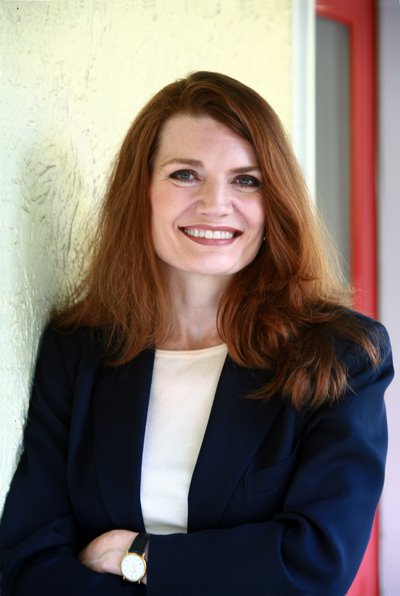 Bestselling author Jeannette Walls wrote a memoir, The Glass Castle (Scribner), a triumphant account of overcoming a difficult childhood with
her dysfunctional family, that has been a New York Times bestseller for over three years. Her most recent book is Half Broke Horses (Scribner), a "true-life novel"
about her fearless and tough maternal grandmother. Walls lives in rural
Virginia with her husband, the writer John Taylor.
Bestselling author Jeannette Walls wrote a memoir, The Glass Castle (Scribner), a triumphant account of overcoming a difficult childhood with
her dysfunctional family, that has been a New York Times bestseller for over three years. Her most recent book is Half Broke Horses (Scribner), a "true-life novel"
about her fearless and tough maternal grandmother. Walls lives in rural
Virginia with her husband, the writer John Taylor.
Here she talks about her books and the value of book clubs, at Blue Willow Bookshop in Houston, Tex. You can also view trailers for A Glass Castle and Half Broke Horses.
On your nightstand now:
At Home by Bill Bryson, In the Sanctuary of Outcasts by Neil White, The Memory Palace by Mira Bartók.
Favorite book when you were a child:
A Tree Grows in Brooklyn by Betty Smith.
Your top five authors:
I tend to devour books by topics, and lately I've been reading a lot of books about how the brain functions. My favorites have included My Stroke of Insight by Jill Bolte Taylor, Born on a Blue Day by Daniel Tammet, Still Alice by Lisa Genova, A Beautiful Mind by Sylvia Nasar and Touched by Fire by Kay Redfield Jamison.
Book you've faked reading:
One Hundred Years of Solitude in Spanish. It was assigned in college for the third year of Spanish and I just couldn't do it. I read it in English instead.
Book you're an evangelist for:
The Rivalry by John Taylor, a truly brilliant author who also happens to be my husband.
Book you've bought for the cover:
Remarkable Trees of the World by Thomas Pakenham.
Book that changed your life:
I read The Grapes of Wrath when I was in the fifth grade and was totally nuts for it. Okay, so I was a bit of a nerd, but it really drove home to me how a book can humanize outcasts--which I felt the whole Walls family was.
Favorite line from a book:
Now, the
Star-Belly Sneetches had bellies with stars.
The Plain-Belly Sneetches had none upon thars. --The Sneetches.
I loved Dr. Suess when I was a kid and had this entire poem memorized when I was four.
Book you most want to read again for the first time:
The End of the Affair by Graham Greene.